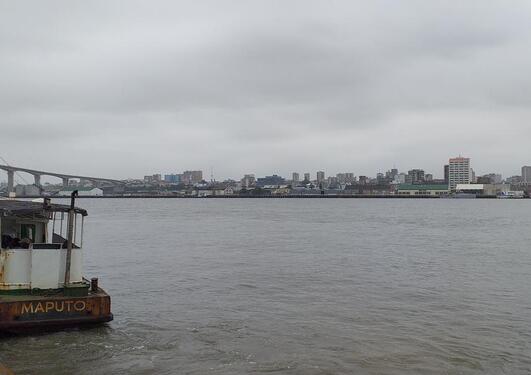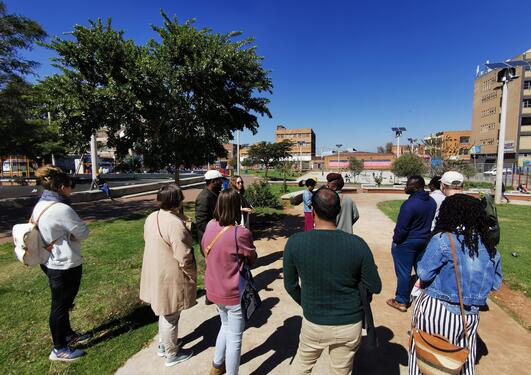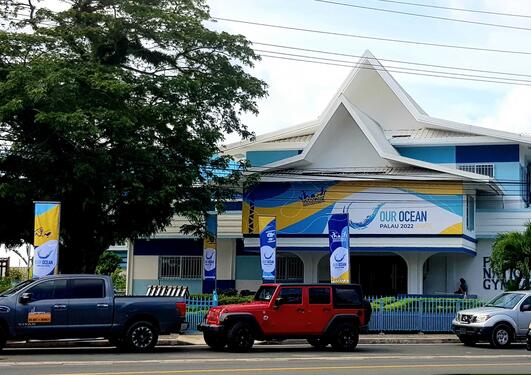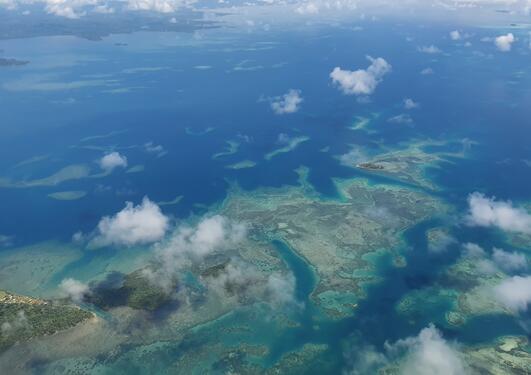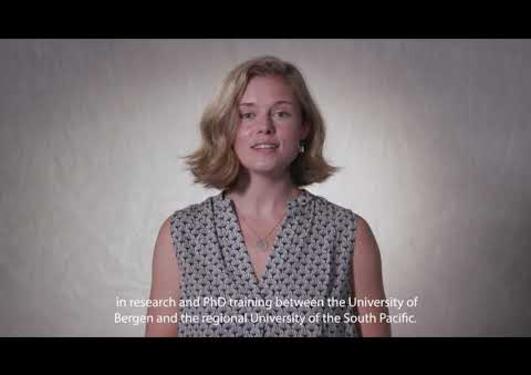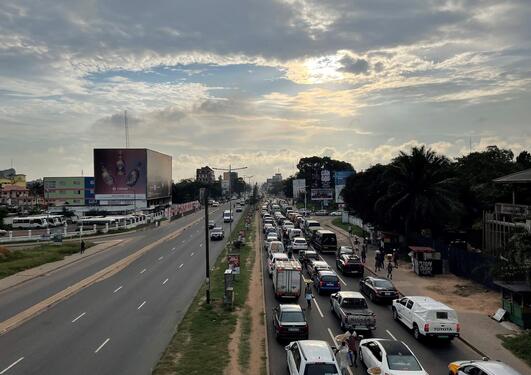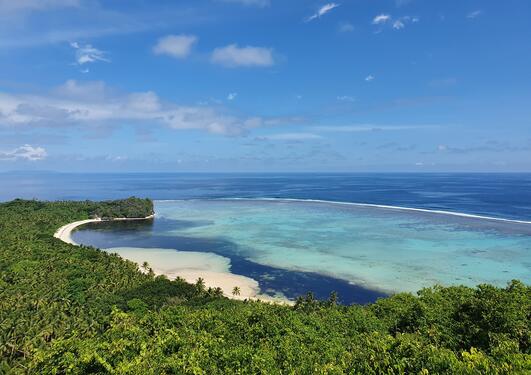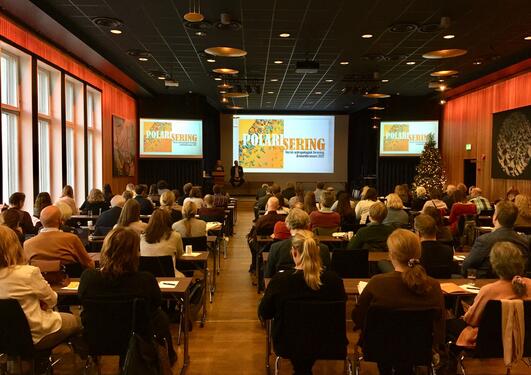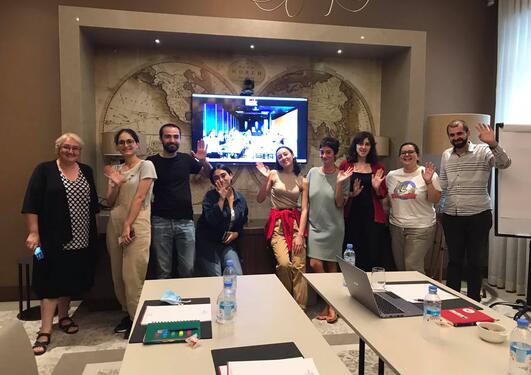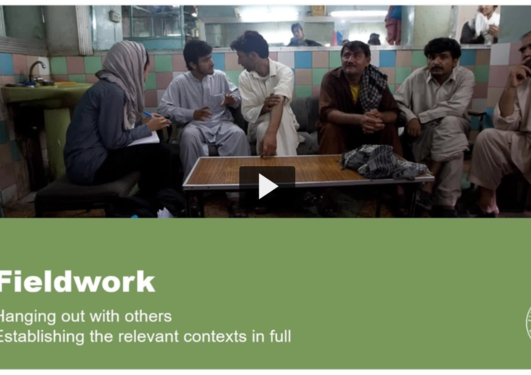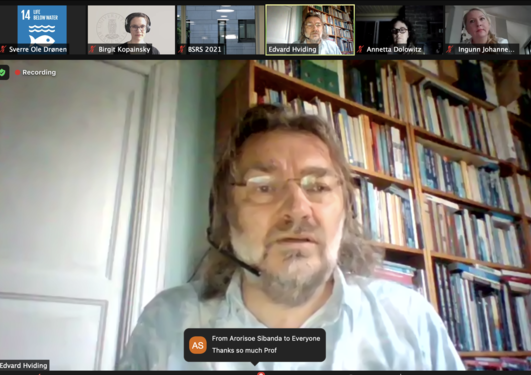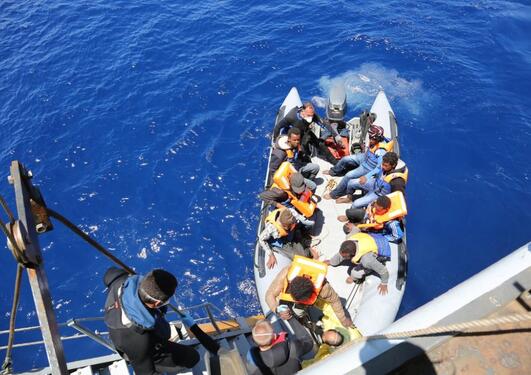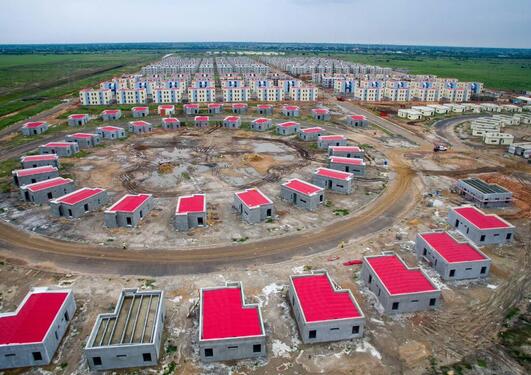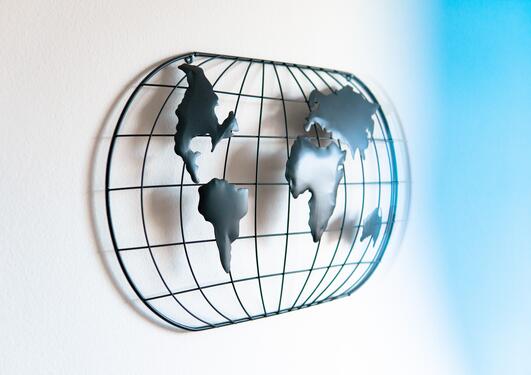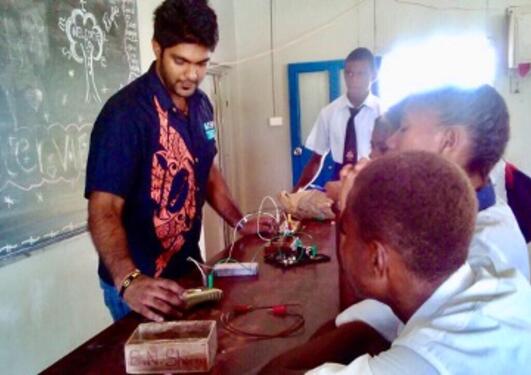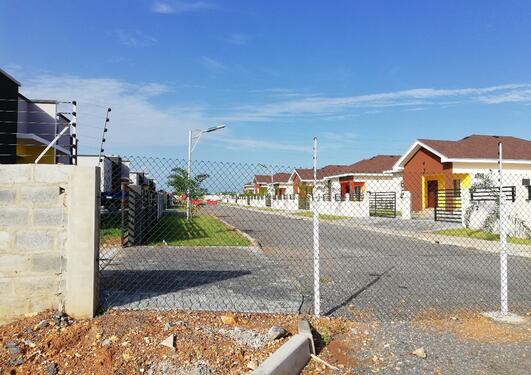News archive for Department of Social Anthropology
Morten Nielsen, Jason Sumich and Bjørn Enge Bertelsen have been shortlisted for 'Urban Studies' best article of 2021
Having been delayed by the COVID pandemic, the third Urban Enclaving Workshop was at last held the 25th of April until the 1st of May 2022 in Johannesburg, South Africa.
The ocean’s role for Earth was one of the key topics discussed at Our Ocean 2023 in Palau. UiB Professor Edvard Hviding was one of only a few researchers present at the conference and engaged in discussions on the Pacific’s role in climate change. But what would be the best measure to save our ocean?
Read the latest updates on the OceanStates front in our research blog.
On World Ocean Day in June 2021, a unique Norwegian-Pacific PhD Scholarship Programme was picked as one of the first 60 UN Ocean Decade Actions worldwide and one of three Norwegian actions.
For decades Accra´s traffic has been a huge problem for the city´s development. Long traffic jams in rush hours, road accidents and poor travel conditions for everyone that moves within Accra is a well-known issue in Ghana and a conversation topic for Accra´s inhabitants - like rain and the weather are a common conversation topic in Bergen, Norway.
Read the latest updates on the OceanStates front in our research blog.
On 25-26 November, the annual conference of the Norwegian Anthropological Society was held in Bergen. See pictures from the conference here!
New PhD course dedicated to an investigation of the imaginary projects of technoscience. Candidates of social anthropology and related disciplines are welcome to apply!
Georgian and Norwegian Anthropology students tested their skills as real anthropologists during twelve intensive days of Summer School in Anthropological Research Methods.
We are happy to announce our brand new Crash Course in Social Anthropology! All interested are welcome to take the course.
Open call for Three PhD research fellowships within the project “On Equal Grounds? Migrant Women’s Participation in Labour and Labour Related Activities” (EQUALPART). APPLY BY 15 SEPTEMBER 2021.
During this year’s Bergen Summer Research School, 17 SDG-oriented policy briefs were produced by more than 100 enthusiastic participants as part of a joint call by PhD for Innovation and SDG Bergen Science Advice.
Global displacement has reached an all time high in 2021. The world has never needed the UN Refugee Convention more than in its 70th anniversary year.
Housing has remained one of the fundamentals of every society. However, in Ghana, most of the population lacks decent and affordable housing; the current housing deficit in Ghana is over 2 million.
SDG Bergen Science Advice has provided input to the national SDG plan for Norway. Our input is inspired by the University of Bergen’s longstanding scientific advice towards the UN system and targeted approach to the 2030 Agenda.
Read the latest updates on the OceanStates research front in our blog.
Detachment and separation continue to be central to urban development across the globe, especially in Sub-Saharan Africa. Will enclaving—the construction of these detached societies—further fuel socio-economic differences?
Pages
- December 2025 (1)
- October 2025 (1)
- August 2025 (1)
- July 2025 (1)
- June 2025 (1)
- January 2025 (1)
- December 2024 (1)
- November 2024 (1)
- August 2024 (1)
- July 2024 (1)
- June 2024 (3)
- May 2024 (1)
- April 2024 (1)
- March 2024 (1)
- December 2023 (2)
- November 2023 (2)
- August 2023 (2)
- June 2023 (4)
- May 2023 (1)
- April 2023 (2)
- March 2023 (2)
- February 2023 (1)
- October 2022 (3)
- September 2022 (1)
- August 2022 (1)
- July 2022 (1)
- April 2022 (1)
- March 2022 (1)
- December 2021 (5)
- September 2021 (2)
- August 2021 (1)
- June 2021 (4)
- April 2021 (1)
- March 2021 (3)
- February 2021 (1)
- November 2020 (1)
- September 2020 (2)
- July 2020 (1)
- June 2020 (1)
- May 2020 (1)
- April 2020 (4)
- March 2020 (3)
- December 2019 (1)
- November 2019 (1)
- October 2019 (2)
- September 2019 (2)
- August 2019 (1)
- May 2019 (1)
- April 2019 (2)
- January 2019 (2)
- October 2018 (2)
- September 2018 (2)
- August 2018 (4)
- July 2018 (4)
- June 2018 (2)
- May 2018 (2)
- April 2018 (2)
- March 2018 (1)
- February 2018 (1)
- January 2018 (1)
- December 2017 (1)
- November 2017 (2)
- October 2017 (1)
- September 2017 (3)
- June 2017 (5)
- May 2017 (1)
- April 2017 (3)
- March 2017 (3)
- January 2017 (2)
- December 2016 (3)
- November 2016 (4)
- September 2016 (2)
- July 2016 (2)
- June 2016 (3)
- December 2015 (1)
- November 2015 (1)
- October 2015 (4)
- May 2015 (1)
- April 2015 (1)
- March 2015 (1)
- February 2015 (1)
- January 2015 (1)
- December 2014 (2)
- November 2014 (3)
- June 2014 (2)
- April 2014 (1)
- March 2014 (1)
- December 2013 (1)
- September 2013 (1)
- August 2013 (1)
- October 2011 (1)
- October 2010 (1)
- April 2010 (1)
- September 2009 (1)
- March 2009 (1)
- February 2009 (1)
